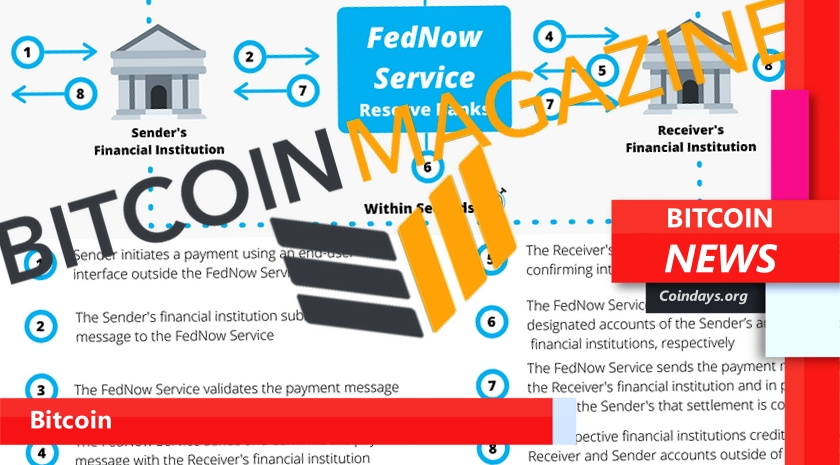Freedom of Speech Under Fire: Fed Takes Legal Action Against Bitcoin Magazine
In a move that raises concerns about freedom of speech, the U.S. Federal Reserve is taking legal action against Bitcoin Magazine for its critical coverage of the central bank’s newly launched FedNow interbank clearing and settlement service. The Fed claims that the magazine’s use of its image and trademark in a line of merchandise constitutes an unauthorized infringement, rather than protected speech.
At issue is a series of products sold by Bitcoin Magazine that feature the FedNow Service image and trademark, with the aim of criticizing the system’s potential impact on American civil liberties. According to the Federal Reserve Bank of Chicago, the publication’s use of the trademark without permission could mislead readers into thinking there is a connection between the two entities.
Bitcoin Magazine has responded to the allegations with an open letter to Thaddeus Murphy, Deputy General Counsel at the Federal Reserve Financial Services. In it, they argue that their use of the FedNow image and trademark falls under fair use provisions and is essential to public discourse surrounding the controversial service.
This development comes at a time when concerns over government surveillance and privacy are increasingly relevant. The FedNow system, which enables real-time gross settlement (RTGS) and liquidity management, has raised questions among some experts about its potential implications for individual financial privacy.
Critics argue that the system’s architecture may allow for unprecedented monitoring capabilities, potentially jeopardizing Americans’ right to financial privacy. By using the FedNow image and trademark in their critique, Bitcoin Magazine sought to draw attention to these issues and spark public debate.
However, the Federal Reserve sees things differently. In its letter to Bitcoin Magazine, the central bank asserts that the publication’s actions constitute “unauthorized use” of its intellectual property and could lead to confusion among consumers.
While the Federal Reserve holds the rights to its image and trademark, the question remains whether Bitcoin Magazine’s use of them qualifies as protected free speech or an infringement. This case highlights the delicate balance between intellectual property law and the fundamental right to express opinions freely.
As this situation unfolds, it will be crucial to monitor the implications for press freedom and the ability of media outlets to hold powerful institutions accountable through satire and commentary. The outcome of this legal battle could set a precedent for future cases involving the use of government symbols and trademarks in critical reporting.
Ultimately, the fate of Bitcoin Magazine’s merchandise and the broader issue of freedom of speech will depend on the courts’ interpretation of fair use doctrine and the extent to which it protects public discourse on matters of significant social concern. As society continues to grapple with the complexities of privacy in the digital age, this case serves as a reminder of the importance of preserving the First Amendment’s safeguards for a well-functioning democracy.



